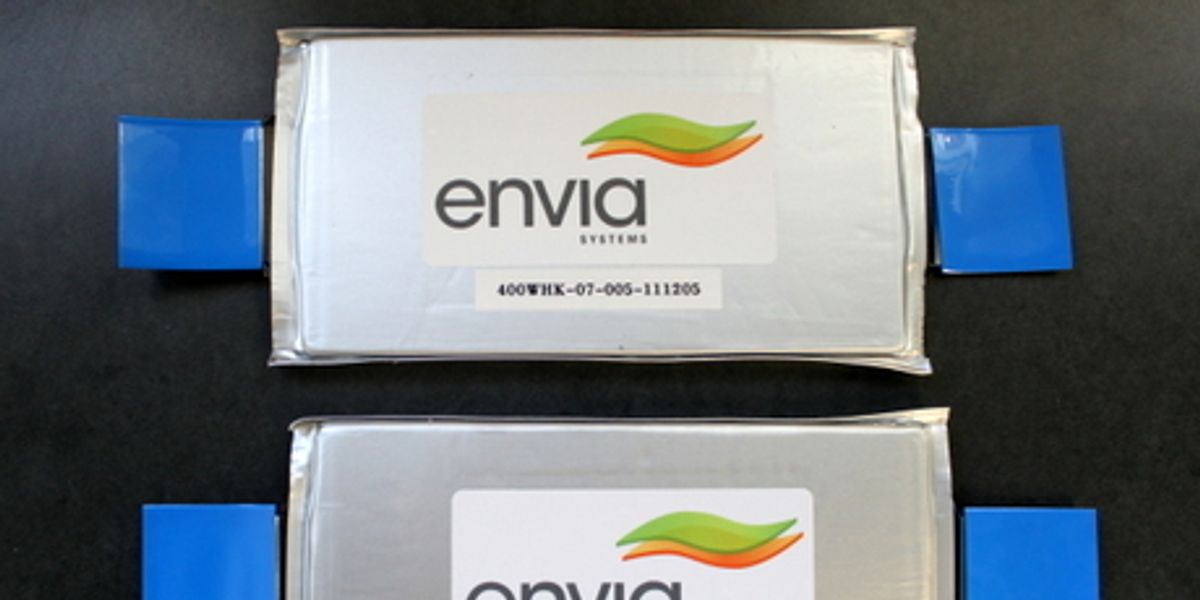Envia Systems, the Bay Area startup with a name well crafted to inspire jealousy, succeeded in doing just that with its claim, yesterday, that it has developed a lithium-ion battery with an energy density of 400 watt-hours per kilogram and an ability to deliver energy at a cost of $125 per kilowatthour. If that boast is validated, which the company says GM is in the process of doing, the battery's energy density is two or three times better than what is otherwise available now and its cost perhaps half of the usual. At the very least, Envia's achievement ought to give lithium ion batteries developed for hybrid and electric cars a new lease on life, as the San Jose Mercury News observed in a report.
Nevertheless, the company's claims and their implied implications ought to be treated with some caution. Though Envia has had the support of ARPA-E and the U.S. Advanced Battery Consortium, and though it publicized its claims at an ARPA-E conference yesterday, the advanced research agency for energy has not posted a press release about the event on its own website. (A one-paragraph ARPA-E summary of what Envia is and what it is trying to do preceded yesterday's conference.)
According to the Mercury News report, a battery pack made with Envia's technology could give a car a range of 300 miles at a cost of $25,000. That is still not all that cheap. (My Mini Cooper, if the reader will pardon my introducing a personal detail, has a range of 400 miles and the whole car cost $20,000.)
Last, and hopefully least, there is the improbable but not impossible prospect that current high oil prices will turn out to be a mere blip, and that Americans will soon be living in a world once again in which gasoline is cheaper than bottled water. If counter to mainstream opinion that turns out to be the case, hybrid and electric cars will be of course dead again.



